One animal cruelty investigation tells a story. A decade of investigations reveals a pattern.
Important action: British Columbia is currently updating its Farmed Animal Welfare Framework. Can you support major changes to protect farmed animals in B.C.?
In this month’s episode of the Informed Animal Ally, Vancouver Humane Society Campaign Director Emily Pickett discusses what she has observed in her decade of working with the organization. What patterns have there been? What’s changed? And, armed with a growing body of information about animal well-being and newly released recommendations for B.C.’s Farmed Animal Welfare Framework, where do we go from here?
Note: This written discussion has been edited for length.

Featured Guest: Emily Pickett
Campaign Director
Emily joined the VHS team in 2014, after completing her degree in Political Studies from the University of Saskatchewan and a campaign internship with the Humane Society of the United States. She has worked in the non-profit sector ever since and her life-long love for animals has guided her work in the animal protection and conservation movements. As VHS’s Campaign Director, Emily manages the organization’s campaign strategy around issues including farmed animals; animals in captivity; animals in entertainment; and co-existence with wildlife.
The last 10 years of farmed animal cruelty
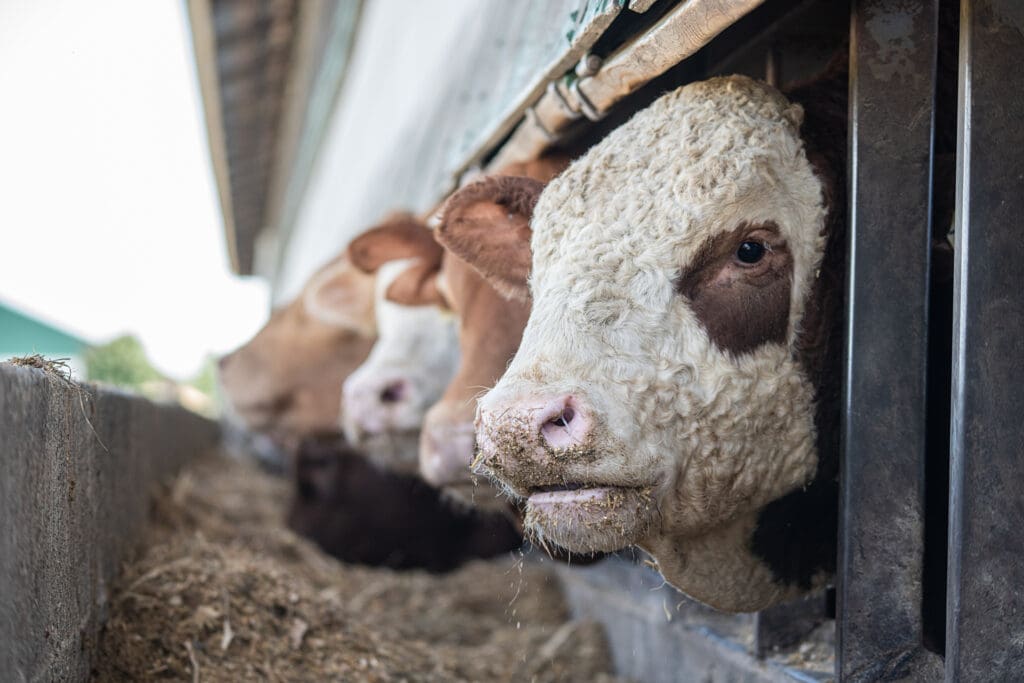
Amy: Emily, can you provide an overview of farmed animal cruelty investigations in British Columbia over the past decade?
Emily: Certainly. I joined the VHS in 2014 just as news was breaking about an investigation that would become one of the most prolific in B.C. history.
2014 investigation: Chilliwack Cattle Sales
Emily: Undercover footage taken by a worker at Chilliwack Cattle Sales showed dairy cows being subjected to horrific cruelty and abuse. The case and the subsequent trial came to dominate the media cycle.
While those in the industry argued that the case represented a “bad apple” and was the exception, not the rule in terms of how animals are treated in the animal agriculture industry, the unfortunate reality is that there have been near-annual undercover investigations that have taken place over the last decade.
And that’s just in British Columbia alone.
Near-annual investigations reveal recurring cruelty concerns
Emily: Since The Chilliwack cattle sales case in 2014, we’ve seen undercover investigations across the entire animal agriculture industry, including:
- An Abbotsford-based turkey slaughterhouse;
- Multiple investigations involving a Chilliwack-based farm labor company;
- Several Abbotsford egg farms;
- Two investigations involving the same Abbotsford pig farm;
- A dairy farm in Abbotsford;
- A Pitt Meadows-based slaughterhouse.
These are really illustrating serious, systemic, recurring issues within this industry that need to be addressed.
Outcomes and cruelty charges
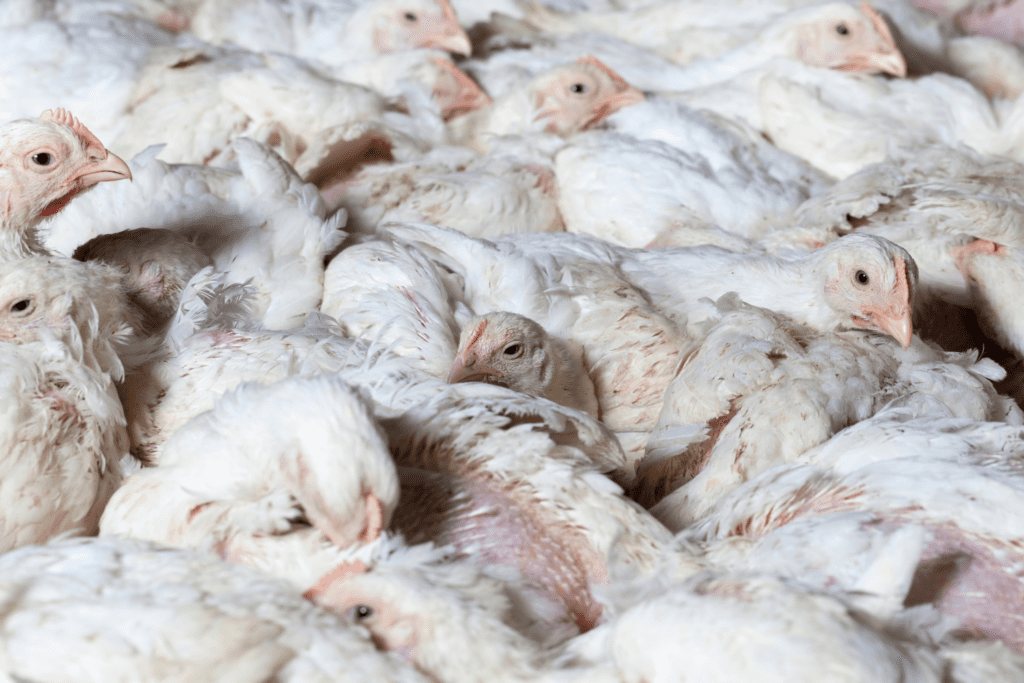
Amy: What were the outcomes of those investigations?
Emily: Generally speaking, charges in these kinds of cases are quite rare.
The 2014 Chilliwack cattle sales case was a first in terms of a B.C. company itself being held accountable for farmed animal cruelty. The company’s president and a director pled guilty to animal cruelty, and the company was fined about $345,000. Several employees also pled guilty and they received varying jail sentences ranging somewhere from about seven to 60 days, and these were served intermittently.
They also received probation, fines, and there were also some prohibitions handed out against caring for animals for a certain amount of time.
Some went through an appeal process as well.
In the case of the 2017 Elite Farm Services investigation, six employees were fired as a result of that, and the chicken catching company itself was fined about $300,000 and put on three years probation. But in the time that it took for the company to be charged in 2021, Elite Farm Services was accused of cruelty again in two other investigations in 2018 and 2020.
So both the Chilliwack Cattle Sales and the Elite Farm Services cases took several years to result in charges and fines. And we’re still waiting on updates about some of the more recent investigations.
Chantelle: It’s so frustrating that animals are suffering while we wait for justice to be served. As you mentioned, charges in these kinds of cases are rare and the outcome can be just business as usual. And that’s just the cases that come to light.
Challenges enforcing cruelty laws
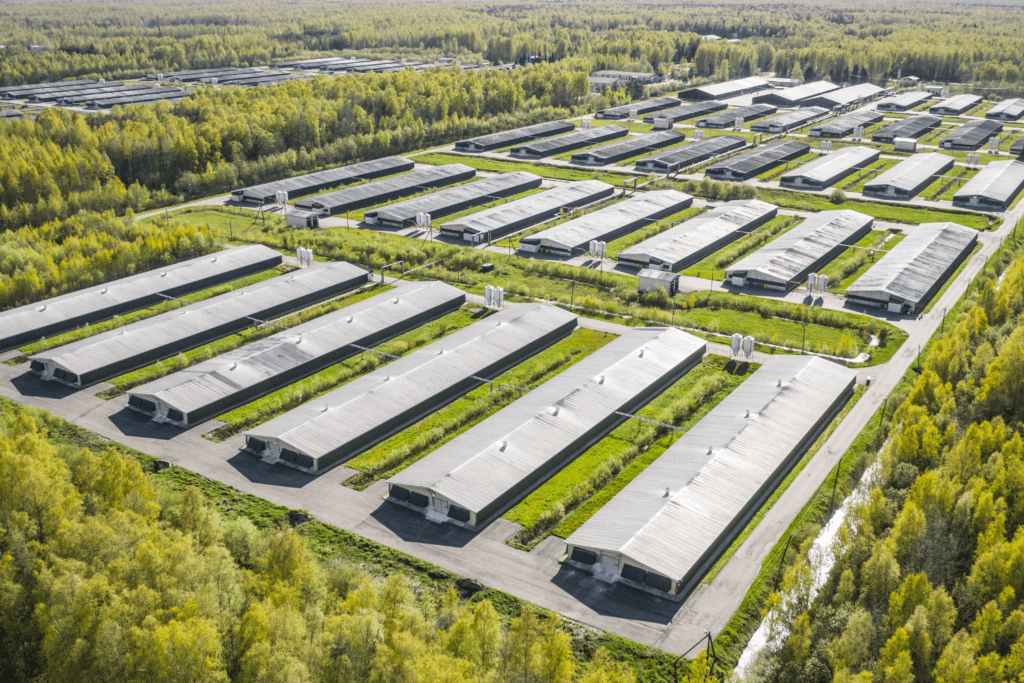
Chantelle: In general, it’s difficult to investigate and enforce animal cruelty cases. Could you talk about some of the challenges that are involved in investigating and enforcing cruelty laws in British Columbia?
No government-funded enforcement for thousands of farms operating in province
Emily: Yeah, there are a number of challenges starting with the fact that there are thousands of animal farms across British Columbia, which really makes oversight and enforcement just more difficult.
Another issue is that the B.C. government doesn’t fund enforcement of its own Prevention of Cruelty to Animals Act. Enforcement of the act is primarily done by the BC SPCA, which relies on donations to conduct this really important work.
Investigations are complaints-based, but industry is hidden from public view
Emily: Investigations by authorities are based on a complaint-driven system rather than being proactively conducted.
This is of course, quite problematic when we consider that farmed animals are increasingly kept confined behind closed doors and ultimately hidden from public eye.
This is why undercover investigations have played such a significant role.
Many undercover investigations not admissible in court
Emily: The other factor to consider is that if footage is obtained illegally, it’s then not admissible in court.
And that’s something that we’ve seen in these investigations in some of these cases as well.
Individual workers blamed for company issues
Emily: In the rare event that charges are laid, we have seen that it’s often employees who are typically held accountable, while management and companies often can escape blame.
“Slap on the wrist” penalties not an effective deterrent
Emily: Another issue is ensuring that penalties are effective enough to deter animal cruelty in the first place and hold those who abuse animals accountable.
We can’t have fines that are just seen as a cost of doing business.
Patterns in cruelty cases
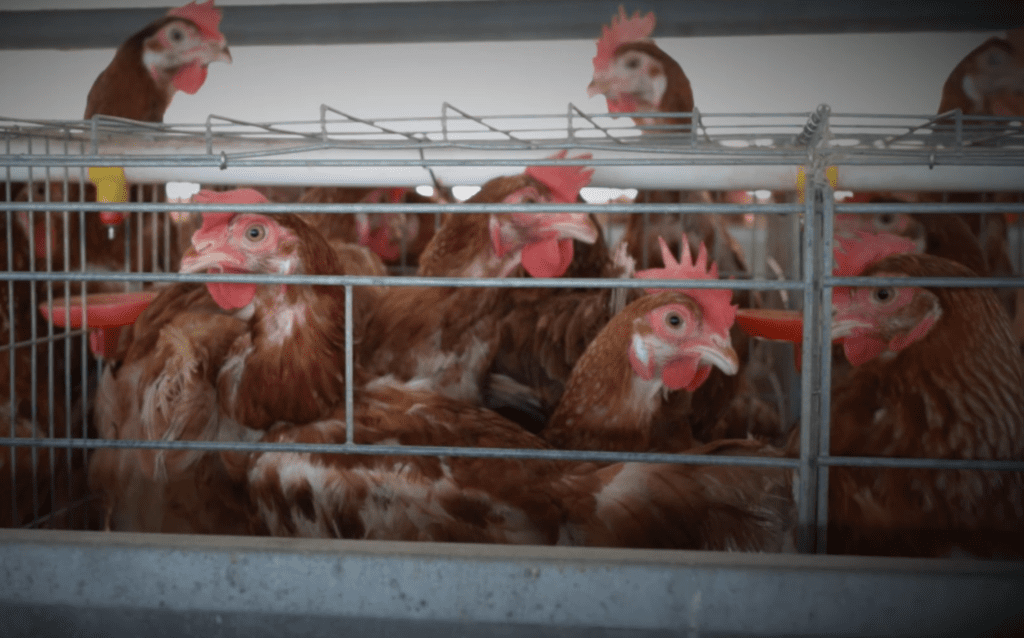
Chantelle: Could you talk about some of the commonalities and trends that we’re seeing in these cases?
Cruelty is endemic in animal agriculture industry
Emily: I think the fact that we see these investigations across all types of farms, from dairy farms to egg farms, chicken farms, pig farms, and even slaughterhouses, this tells us that that these problems are systemic within the animal agriculture sector.
It isn’t just a case of a couple of bad apples, as is sometimes suggested.
And while company management and owners often claim to have not known about cruelty issues taking place on farms, we often see that undercover investigators and whistleblowers have reported concerns to management and owners, but no action is taken to address these issues.
So I think there’s a lot more of an issue of a toxic culture and environment in many of these places.
Same companies are repeat offenders
Emily: Another trend that we’ve seen is that it’s often not the first time that a company has been accused of cruelty or neglect. For example, we see that prior to the 2014 Chilliwack Cattle Sales investigation, the company was in court after a number of cows were injured while being transported to slaughter in 2008 (link opens as PDF).
Meanwhile, the chicken catching company Elite Farm Services is accused of cruelty in several instances over a number of years.
The company involved in the Meadow Valley Meats slaughterhouse investigation was previously known as Pitt Meadows Meats, which pled guilty in 2015 to selling E. coli tainted meat and deciding not to recall that meat.
More recently, there’s also the Excelsior Hog Farm case where the farm was accused of cruelty in a 2019 investigation and then again in late 2023.
Animals treated as products, not beings
Emily: Without getting into detail about what’s captured in the footage of these undercover investigations, we ultimately see that these animals are being treated as cogs in a machine or parts in a factory rather than the living, feeling beings that they are.
Not only are they handled and treated in this way that we see in the footage, but they’re kept in this way throughout their entire lives. They’re warehoused in these industrial environments that prevent them from engaging in even some of the most basic behaviours.
When we see animals behave like animals at all, when they react or they resist, what we see in the footage is they’re not treated kindly in response.
Amy: There’s so much work that goes into getting this footage that the organizations and people that are gathering the footage are releasing what they have.
Every time there is an undercover recording operation that goes on, that footage is being released.
That footage is going out for recommendations for charges, at least by the people who took the footage. They’re asking the government to put forward charges. And I think what’s so striking about it is that we see a consistency that when people are recorded behind the scenes, they aren’t treating animals well.
And particularly it’s most common when it comes to handling animals. I saw this firsthand working on farms myself. These were really amazing farms with organic or free range. And still, when it came to the handling, I saw animals being hit and poked and prodded and verbally abused and demonized.
And that’s what comes out in all of this footage year after year.
Growing public awareness
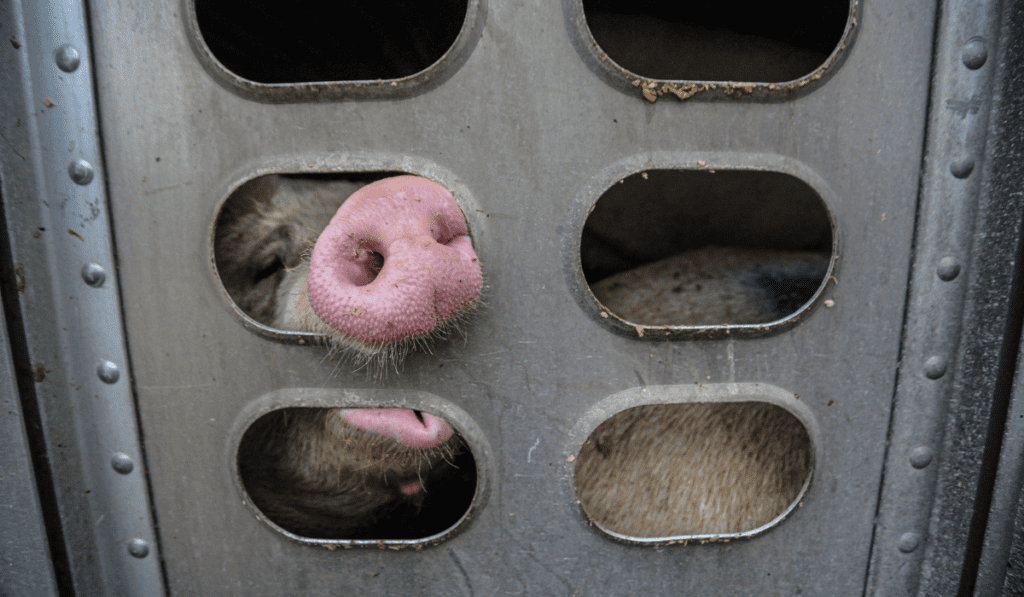
Amy: How has public awareness and perception of animal cruelty evolved over the past decade in British Columbia as a result of these pieces of footage being released to the media?
More people calling for change
Emily: I think the last decade of undercover investigations has really contributed to growing public concern around farmed animal welfare and around the lack of transparency just surrounding our food system in general.
In fact, around this time last year the National Farm Animal Animal Care Council released its updated Dairy Cattle Code of Practice. These codes of practice provide guidelines for the care of dairy cows on farms across Canada. The code’s public comment period reportedly received a record setting number of comments from more than 5,800 individuals, many of whom indicated they were participating as a concerned citizen or animal welfare advocate.
It was exciting to us to see such strong public involvement in a consultation about the specific day to day care and handling of dairy cows.
Growing awareness of animal sentience
Emily: More generally speaking, we are also seeing stronger awareness and support of concepts like One Welfare, which recognizes the interconnectedness of the well-being of animals, people, and the environment, and our collective understanding of animal sentience. This is the concept that animals have the capacity to experience feelings like happiness, joy, pain and suffering.
I think that’s also really expanded in the last decade as well. As we as a society have continued to learn more about the welfare and well-being of animals, we’ve seen public sentiment shift on many topics and the impact that that’s had on government regulations.
Progress in animal laws
Emily: For example, although it’s not farmed animal related, the 2017 Vancouver Park Board ban on whale and dolphin captivity is an example. That was followed by a federal ban across Canada in 2019.
There was the example of significant restrictions announced by the B.C. government in 2022 around the use of some of the most dangerous and inhumane rodent poisons. We’re seeing government regulations evolve as well, slowly but surely.
As the B.C. government reviews its long outdated Farmed Animal Welfare Framework, now is really a crucial opportunity for the province to bring into alignment public values and the demand that the public has for the humane treatment of animals on farms as well.
Chantelle: It’s so promising that we’re seeing the public awareness growing around animal well being.
It’s not only awareness, we’re really seeing that people care deeply about animals. So often, when people know what’s going on with animals, there’s a strong drive to change it. But then, unfortunately, on the flip side, that means we have the industries who profit off of animal suffering trying to keep that suffering more and more hidden.
Ag-gag laws combatting public awareness
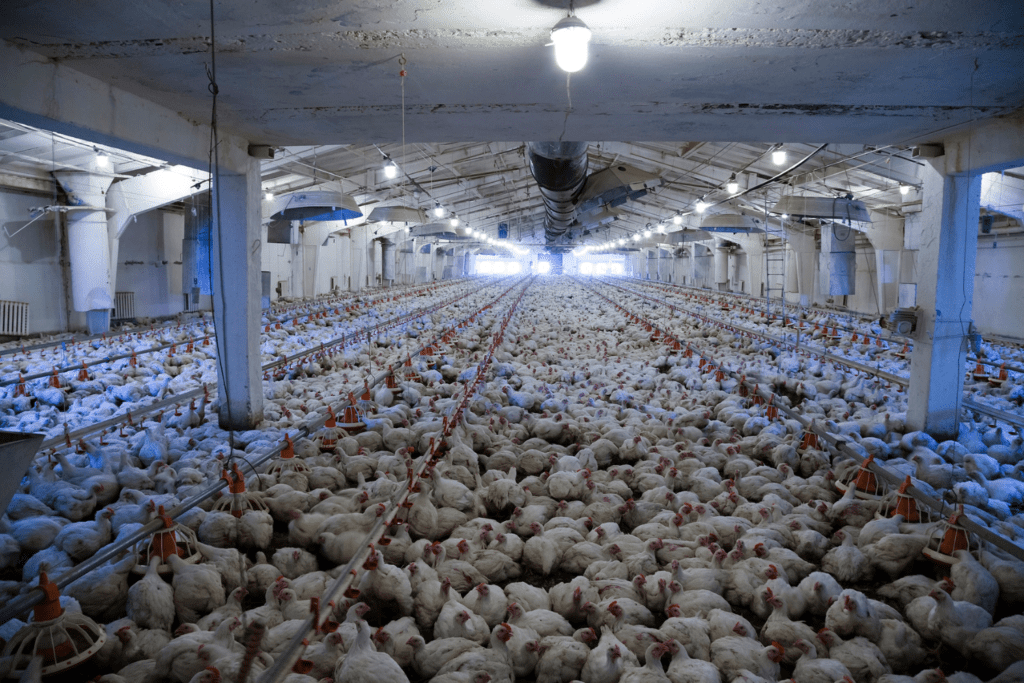
Chantelle: As you mentioned, we have more animals than ever that are being raised in these industrial farms behind closed doors. And in B.C., welfare requirements aren’t proactively enforced on a large scale.
There are trespassing laws that prevent activists and journalists from entering onto farms.
And then taking that a step further, there’s a rise in ag-gag legislation that punishes people who expose animal cruelty on farms. That’s making the industry even less transparent to the public by preventing undercover footage that shows how animals are being treated. So how are people going to know?
Recently, on April 2nd of this year, Animal Justice, Jessica Scott Reed, and Louise Jorgensen struck down significant parts of an ag-gag law in Ontario by showing how it violated charter protected freedom of expression.
I’m really excited about seeing where that goes in the future and how that can help with transparency across Canada.
Amy: Thanks for sharing about that, Chantelle. I worked a job in the past that brought me inside chicken barns inside pig slaughterhouses, chicken slaughterhouses, on dairy and beef farms; cows live in all different circumstances.
And it’s amazing to think that that’s a unique thing that I have seen more than most of the public. And yet people are consuming these animals and their products without really understanding what their experience is.
Chantelle: I think it’s very telling that in every fully vegan space that I’ve been in, there’s been at least one person there who’s previously worked in animal agriculture.
So seeing what happens behind closed doors is a real motivation not to be consuming animals.
What’s next?
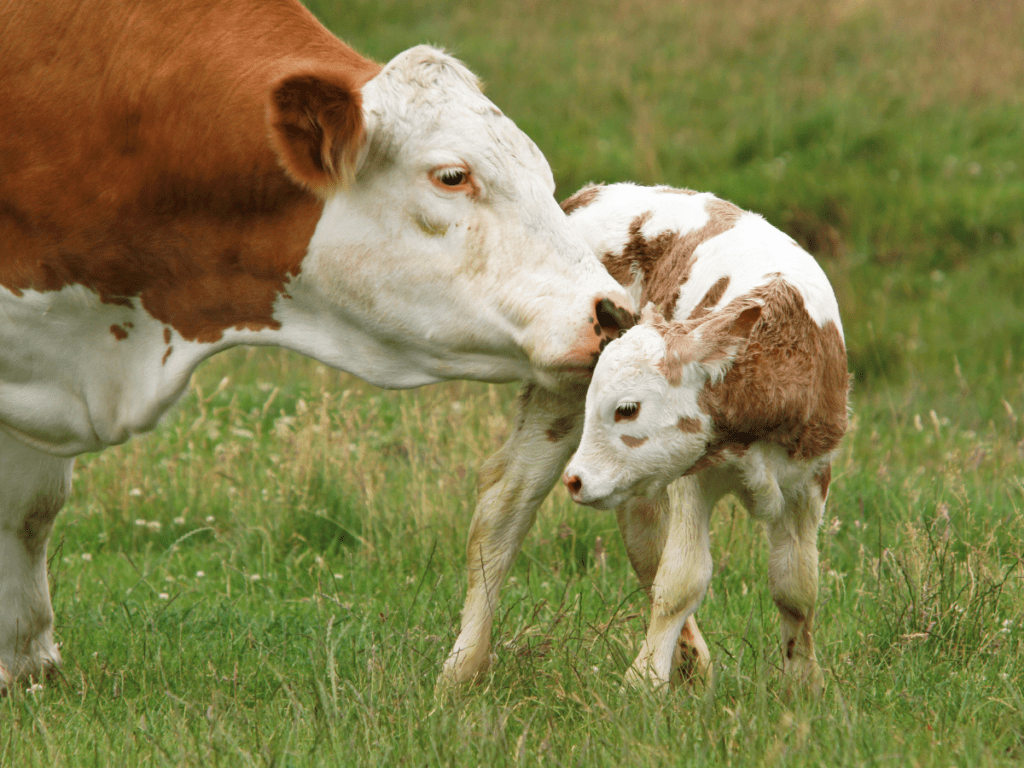
Amy: I’m curious, Emily, with your experience working on farmed animal welfare, what would you like to see change in the way that farmed animal welfare regulations exist and are enforced?
Proactively enforced regulations based in science
Emily: Well, to start, regulations really need to be based on the best available animal welfare science, and they need to be proactively enforced with independent third party audits of farms and of slaughterhouses.
There should be consistent video monitoring in place in these facilities too, along with publicly available reports of all these audits and inspections in order to provide real transparency.
That’s something that the public just doesn’t have, and it’s really important that that be changed.
Make cruelty prevention a priority
Emily: Appropriate deterrents are also a must to prevent animal cruelty in the first place. This should include unannounced inspections and effective penalties for those who commit animal cruelty.
And I think for all of this to be effective, the government really needs to properly fund the oversight and enforcement of this work and to make it a top priority.
Meaningful action is long overdue
Emily: These are the kinds of requests that the VHS and many other animal protection organizations have been long advocating for. I remember seeing this when I first started with VHS after the very first investigation when I joined the organization that the Chilliwack Cattle Sales case in 2014, seeing calls for video surveillance in these facilities. It’s long overdue.
And the recently released advisory committee’s recommendations report, which is part of the farmed animal welfare framework review that’s currently underway, touches on some of these themes. So I know we and many others will be watching very closely to see how the minister responds to that recommendations report and many of these specific recommendations.
We’ll certainly be continuing to advocate for those much needed changes as well.
Public transparency is key
Amy: I think the piece around transparency is the one that I see as the most valuable because government has incentive to essentially maintain a food system for the public that is affordable and that contradicts with some of the values around making sure animals are treated well.
And so given this sort of juxtaposition, the most important part is that all of the government work is immediately transparent so that it doesn’t need to be requested or need someone spending hours pouring over documents to know exactly what information to ask for.
What we need to see as a result of all of the recommendations made by this advisory committee is that the information that comes out of it is intentionally made public.
I think the biggest impact, and essentially on what industry and government might call “eroding public trust”, is the reality of what the investigations and audits find. And so if that information is continuously made available, then we will see improvements in how animals are treated.
But if that information is kept as securely and as private as possible by the government, we’ll essentially not see any drastic changes.
How you can help

Amy: So given all of the recommendations you’ve made, Emily, and also my emphasis, how can listeners help prevent farmed animal cruelty and move towards the system that we’re suggesting?
Stay in touch with decision-makers
Emily: I think one of the most impactful things that people can do is to reach out to decision-makers about this kind of an issue and let them know that it’s a top concern for them as a consumer, as a resident, as a voter.
Write to your MLA, your Member of Parliament, to ministers. Ask to meet with them, ask them to support these much-needed changes to better protect farmed animals and thank them when they do, that’s a really important part as well. And continue to stay in touch and keep the issue on their radar and ultimately continuing to speak up for animals.
Amy: I think this is all really critical. And the more of a broken record you are, the more likely change is going to happen. That’s what we’ve seen with animal welfare, because there isn’t a lot of money behind the work that we’re doing compared to the amount of money that industry has to put into advertising, to put into building what they call “public trust”.
And so what we have is the squeaky wheel. We have the ability to just keep talking to the same people saying, Hey, this really matters. Hey, it still really matters.
And then we have the ability to make choices ourselves in the grocery store to show essentially politicians that we put our money where our mouth is and we buy products that don’t affect animals and cause animals to suffer.
And we do as much of that as we possibly can, wherever we are on our journey of changing our diet, that we’re prioritizing products that don’t harm animals.
Choose plant-based foods when you can
Chantelle: Yeah, absolutely. We say this in almost every episode, whether it’s farmed animals or fishes or wildlife, because it’s such an integral part to making really significant change. But one of the best things that you can do on an individual level is choosing plant-based foods whenever you can.
And if you’re not at that stage, advocating for plant-based foods to be available and accessible.
The greatest animal suffering comes from the demand. There’s so much demand for animal products. If you imagine someone whose job it is to send thousands of animals to their death every day, that would be an impossible task if you were seeing each animal as an individual. So it’s so critical that we’re decreasing the demand for industrial animal agriculture and moving toward more of a plant-based, less animal-based food system.
Next episode
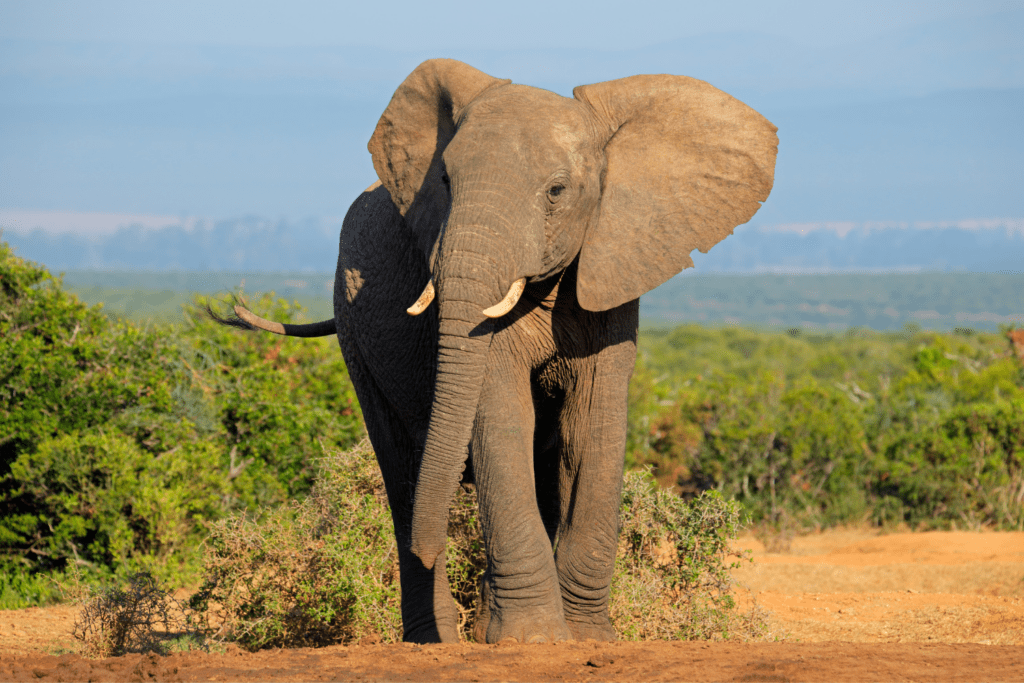
Please join us next month as we discuss the last ten years of farmed animal investigations in B.C.
